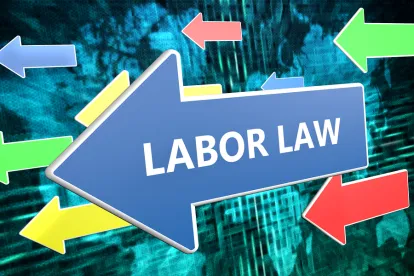Employers across the country should think twice before asking job applicants about their salary history. As we reported earlier this year, a number of state legislatures (and some local governments) considered legislation this past session designed to prohibit inquiries into wage history, in an effort to fight wage discrimination and the gender pay gap. Philadelphia's ordinance is currently on hold pending a legal challenge. However, New York City's law became effective on October 31, 2017, and the city recently released guidelines for both employers and employees regarding proper--and improper--inquiries. Albany County, New York also recently banned inquiries regarding wage history; the ordinance was signed by the County Executive on November 6, 2017 and will become effective 30 days after filing with the New York Secretary of State.
Likewise, San Francisco enacted a salary history ban ordinance this summer. A ban on such inquiries will go into effect for the entire state of California effective January 1, 2018. Asking about applicant's salary history in Oregon is prohibited effective October 2017 (although some provisions of the law will not be effective until 2019) and the law in Puerto Rico also became effective earlier this year. Delaware's statute becomes effective in December 2017.
Moreover, the Illinois legislature passed a salary history ban this past term, but Governor Bruce Rauner vetoed the legislation. The Illinois House of Representatives voted to override the veto, but earlier this month the Senate failed to obtain the votes needed to override the veto. Governor Rauner stated that he was not opposed to the legislation, but wanted the law to more closely match what had been enacted in other states, such as Massachusetts, where an employer may ask about wage history after an applicant has been offered a job.
Governor Rauner's objection to the Illinois legislation highlights a significant issue for employers: differences between laws enacted in various jurisdictions where a company may have employees. While the law in one jurisdiction (such as Delaware and New York City) may allow an employer to ask an applicant about salary expectations, the law in other jurisdictions is not so clear. Similarly, while California and New York City allow employers to take voluntarily disclosed salary history into account, laws in other jurisdictions are silent as to whether (and how) voluntarily disclosed salary history may be used by the employer.
It is widely expected that the Illinois legislation will be reintroduced in the upcoming legislative session. In addition, a number of other states (including Idaho, Maryland, New York, Rhode Island, Texas and Virginia) will likely re-visit the issue during their respective 2018 legislative sessions. Consequently, employers wishing to act proactively should consider taking the following steps as part of their routine interviewing and hiring practices:
-
Eliminate wage history questions from job applications, especially those that are used in multiple jurisdictions;
-
Train both hiring managers and human resources personnel regarding what inquiries are permissible in a given jurisdiction, taking into account that in some instances an applicant may reside in a state with a different law than that of the physical location of the company headquarters or the individuals involved in the hiring decision;
-
Evaluate how wages are set for particular positions and create salary bands based on market wage conditions; and
-
Create a system of documenting when an applicant voluntary discloses salary information to insure compliance with laws.



 />i
/>i

